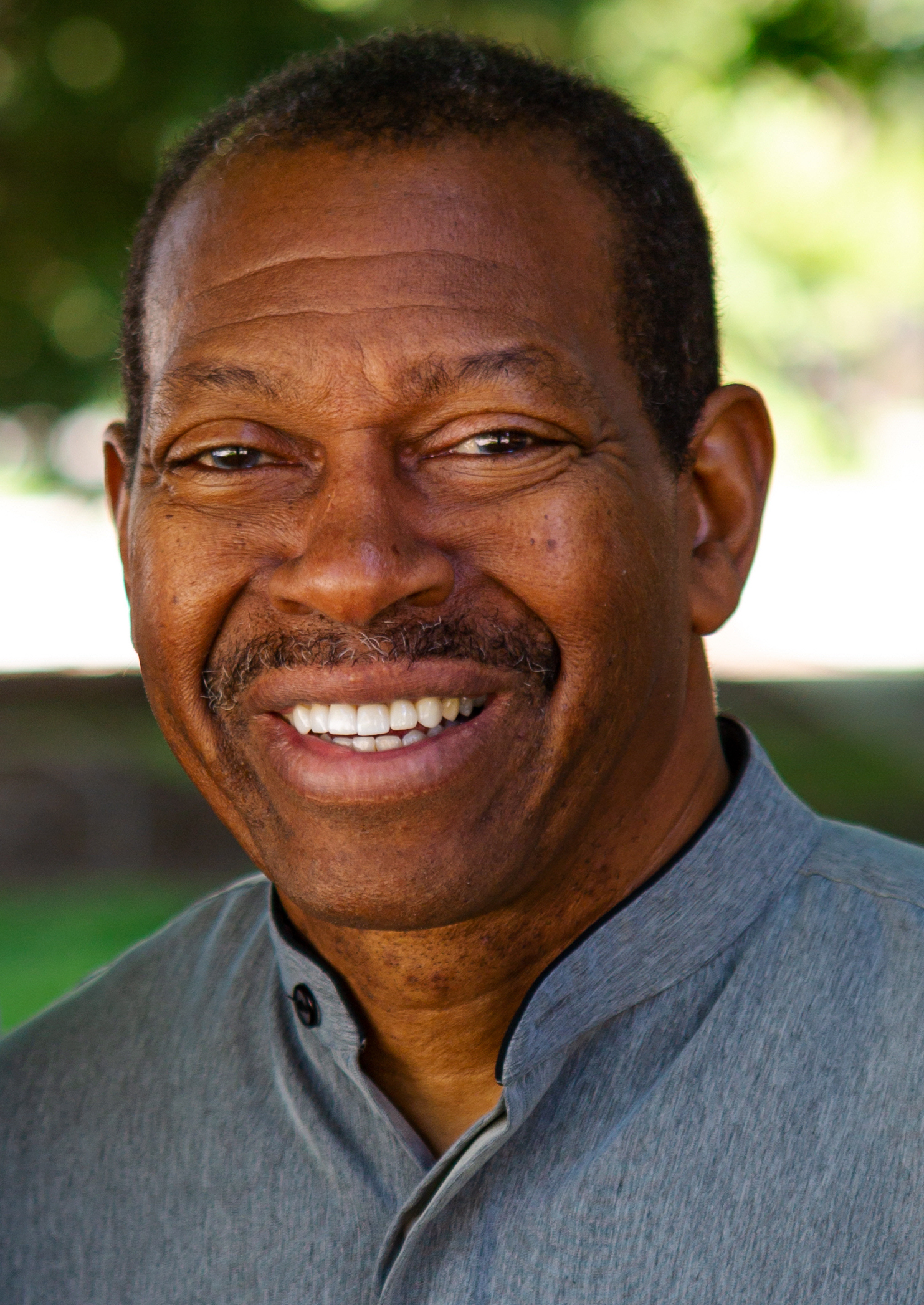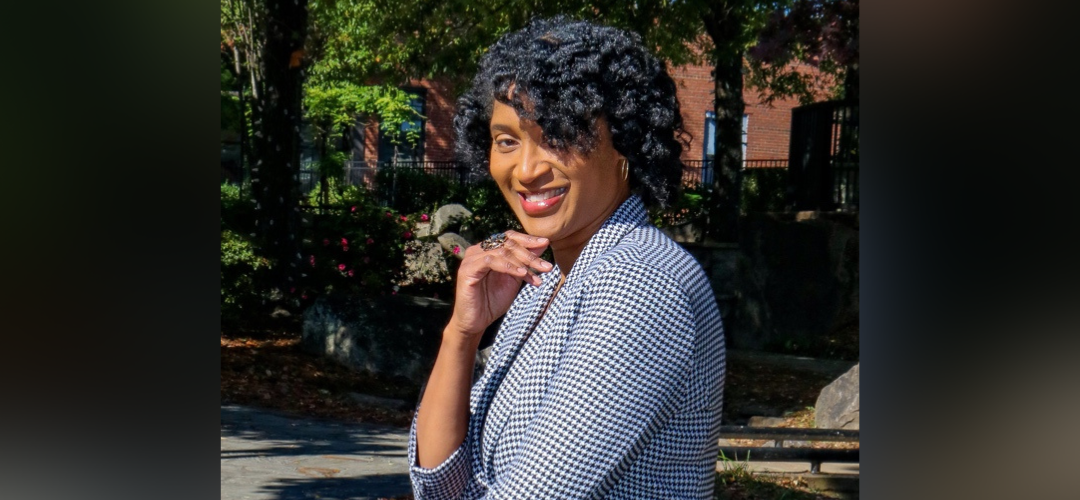Today we’re excited to share a conversation with Monique Gadson, Ph.D., Assistant Professor of Counseling Psychology, discussing her new book as well as her work in psychology. Dr. Gadson joined the faculty at The Seattle School in 2022. This fall, she is teaching Listening Lab: Part I. Later this year, she will also be teaching Social & Cultural Diversities, Helping Relationships I, Family Systems, and Group Therapy.
Dr. Gadson’s new book, Finding Hope in a Dark Place: Facing Loneliness, Depression, and Anxiety with the Power of Grace, co-authored with Clarence Shuler, will be released on December 14th, 2022.
Tell us about your new book: Finding Hope in a Dark Place: Facing Loneliness, Depression, and Anxiety with the Power of Grace.
 A friend of mine for decades, Clarence Shuler, he had a bout with depression. A couple of opportunities had fallen through and he was bummed. We had a conversation where he had to realize and acknowledge he was suffering from depression. After he preached a sermon on his journey (he’s a pastor), a publisher approached him. There were a lot of people appreciative of him sharing his journey: you don’t hear it from the pulpit. The publisher thought it would be good to have a therapist respond to his writing. My friend said, “I know exactly who it would be,” and he approached me.
A friend of mine for decades, Clarence Shuler, he had a bout with depression. A couple of opportunities had fallen through and he was bummed. We had a conversation where he had to realize and acknowledge he was suffering from depression. After he preached a sermon on his journey (he’s a pastor), a publisher approached him. There were a lot of people appreciative of him sharing his journey: you don’t hear it from the pulpit. The publisher thought it would be good to have a therapist respond to his writing. My friend said, “I know exactly who it would be,” and he approached me.
Our text message conversations back and forth amplified into a book where he shared his journey, and he talked about my role in that process. I responded at the end of his chapters, giving general information about some mental health conditions such as depression, anxiety, and suicidal ideation.
It sounds like a collaborative book.
Absolutely!
How was the writing process for you?
I was responding to what he wrote, contributing professional insights and observations. All the writing I had done before this was on my own. It was difficult for me at first. I wanted to make certain that my voice wasn’t too low or too much. For example, he responded to my first submission and said, “You can give more than that.” It was a bit of a dance to find the rhythm. Having been a therapist for 20 years, you can write endlessly on these topics. He kept saying just write, just give what you know to give. It became a natural ebb and flow.
What do you hope the reader receives from your current book?
Although I am a clinician and I had the benefit of writing from clinical experience, that was not initially the aim when I first talked with Clarence as a friend. I hope the reader will understand the power of relationships and how we can be supportive to others when they are going through hard times, when they find themselves in dark places. How we can be that conduit of hope through that relationship with them, how we can allow ourselves to be gracious enough to extend hope to people when they’re in those places, meeting them where they are, through the power of relationships, through friendship, through offering a kind word. I’ve seen this in my class [at The Seattle School] this semester – just really talking about how one encounter, one interaction with a person you may never encounter again may be the moment in their lives that can really speak hope to them
You mentioned you’ve written another book. Can you share more about your earlier book?
I created a journal titled Session Notes: Intimate Times with God to help people daily have a sitting with God practice and taking things that overwhelm them and breaking them down, to get people into that rhythm over and over again. This was in response to a group I had been working with that would have things that would be overwhelming. I wanted to offer a resource to reiterate what was shared in group about how to approach things when it feels overwhelming, to break down these issues and make it feel a little more manageable, and I hope that’s what they will experience with it, as they create their own strategic plan and get into that practice again. I used the SOAP acronym (a therapist progress note template) as a working acronym and structure for the journal.
Where can people learn more about your work?
I have a weekly podcast “And the Church Said” at the intersection of psychology and theology. I’m curating the conversation in a way that would be palatable to the African American church. There’s been a lot of stigma over the years, a lot of suspicion when it comes to mental health and the discipline of psychology. My way is to try to take these disciplines that I’ve been trained in, in the integration of spirituality and psychology, how to intertwine the two of those, so that if you read the Scripture through that lens you would see mental and emotional health is included.
What inspires you to keep going in your work?
My inspiration to keep going is hearing people say how they have experienced liberation, how they have felt mended and whole and hopeful that they can live some sort of life beyond whatever their struggle has been or even sometimes with that particular struggle. As well as my own personal experience of knowing, yes, it is so difficult, the hard work, the showing up time and time again. And the deliverance, when you experience that liberation, that being free, the reflecting back on the grace of God getting us through some of the tough times in the dark places, and knowing that he’s able to do it for us again. In Corinthians, it says that the comfort we have been given we extend to comfort others. As we experience wholeness and healing, from that place, we should be able to offer that to others.
What led you into your work in psychology?
I grew up a PK (pastor’s kid). I have nothing but church all of my life, the Black church experience. I come from a long line of pastors and ministers. Because of the role that the pastor did play and still plays in the lives of African Americans, a lot of people would seek my father out for counsel and comfort, and I would feel at times that talking to a person and prayer was not enough— there’s something more that should be done. We just didn’t have the language at that time, or rather, since I was a child, they didn’t have the language or the trust in the psychology or mental health world. There was no “you should go and talk to a psychologist” because of that shadow suspicion over that community. I felt people needed a little more, needed to know what are the next steps for them, after receiving prayer at the altar or pastor’s office. The seed planted within me: there’s a void there. How do we fill that? I know that’s what fueled my curiosity, and then just sensing a call from the Lord: “You go do this. You become the therapist. You bring this idea, this information, to this community in such a way that it is received– so that people can receive liberation.”


